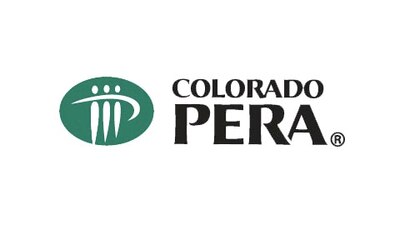Gov. John Hickenlooper has signed a bill intended to make it easier for adult students to return to and finish college, and a measure designed to boost the number of associate’s degrees is nearing final legislative approval.

Also Friday, a bill to modernize state regulation of for-profit colleges and universities was introduced in the legislature. The measure, which is being pushed by the Department of Higher Education, had been expected.Signed by the governor was House Bill 12-1072, which requires state colleges and universities to adopt policies for awarding academic credit to students for “prior learning,” such as professional experience of military training. Such policies have to be in place by the 2013-14 school year.
There already are a variety of tests available to assess students’ life experience, and some colleges give such credit to students. But backers of the bill feel students need broader and more consistent access to such credits.
The House Friday gave preliminary approval to Senate Bill 12-045, which is intended to make it easier for students who don’t have associate’s degrees but actually have sufficient credits to get degrees. The bill is aimed at students who transfer from community to four-year colleges without associate’s degrees and who then leave school without earning their bachelor’s. The bill would allow combination of credits from both colleges to qualify for an associate’s degree.
The measure directs the Colorado Commission on Higher Education and state colleges to develop a system for doing so.
Improving college completion rates is a policy priority of the Hickenlooper administration, but the 2012 bills on the issue deal with small parts of the problem.
Regulation bill designed for changing times
Senate Bill 12-164 is intended partly to respond to the rapid growth in degree-granting institutions operated by for-profit companies.
Under current law, such institutions fall into something of a gray area between other four-year colleges and schools that offer vocational certificates or associate degrees.
Under the new system proposed in the bill, any institution – state, private or for-profit – that has a majority of its students enrolled in bachelor’s degree or graduate programs would be regulated by the Colorado Commission on Higher Education.
Schools where more than half of the students are seeking vocational certificates and associate degrees would remain under the supervision of the Division of Private Occupational Schools and the Private Occupational School Board, which are separate parts of the Department of Higher Education.
As under existing law, the primary requirement for state authorization of an institution is whether it is accredited by a regional accrediting agency.
The bill also proposes some financial and consumer protection provisions to help students, such as requiring new institutions to demonstrate financial fitness or, in some cases, to post bonds that could be used to repay students if an institution closes. (Long-established institutions would be exempted from the new financial requirements.) The bill also bans various deceptive marketing practices.
The bill is the product of extensive discussions between state higher education officials and college operators. Administrative costs would be covered by fees on institutions.
Another PERA bill dies

The House Appropriations Committee Friday killed House Bill 12-1142, which would have allowed all future members of the Public Employees’ Retirement Association to choose between the system’s defined benefit and defined contribution plans. Currently only members of the PERA State Division can choose the defined contribution. Sponsor Rep. Brian DelGrosso, R-Loveland, asked the panel to kill the bill, saying its price tag of nearly $600 million over 30 years meant the bill wasn’t viable.
Of seven Republican-sponsored PERA bills introduced this year only two remain alive. House Bill 12-1150, which would change the way retirement benefits are calculated for new employees, has passed the House but faces slim chances in the Democratic controlled Senate. House Bill 12-1179, which would reduce employee and retiree membership on the PERA board, is sitting in a House committee.
Coming attractions
Three bills of interest to education cleared the House and Senate appropriations committees Friday, clearing the way for floor action. They include:
Senate Bill 12-068, which would ban use of trans fats in foods served at schools. The initial version of the bill drew complaints of “unfunded mandate,” but the bill was amended in the Senate Agriculture Committee to exclude districts with fewer than 1,000 students, and the bill wouldn’t apply to foods sold for fundraisers or supplied for social events. The bill passed Senate Appropriations 5-4 Friday and goes to the Senate floor.
House Bill 12-1240 is a mostly routine cleanup of laws relating to the Department of Education, although it would delay implementation of state high school graduation guidelines and specialized diplomas. The bill gained some controversial amendments in the House Education Committee that were later stripped by House Finance (see story). On Friday House Appropriations passed the bill 13-0 with no further tinkering.
House Bill 12-1261 would extend a program that provides stipends on top of salary to all nationally board certified teachers and additional stipends for those who teach at low-performing schools. However the stipends are subject to annual legislative funding and haven’t been provided in recent years. Appropriations passed the bill to the House floor on a 9-4 vote.
Use the Education Bill Tracker for links to bill texts and status information.
